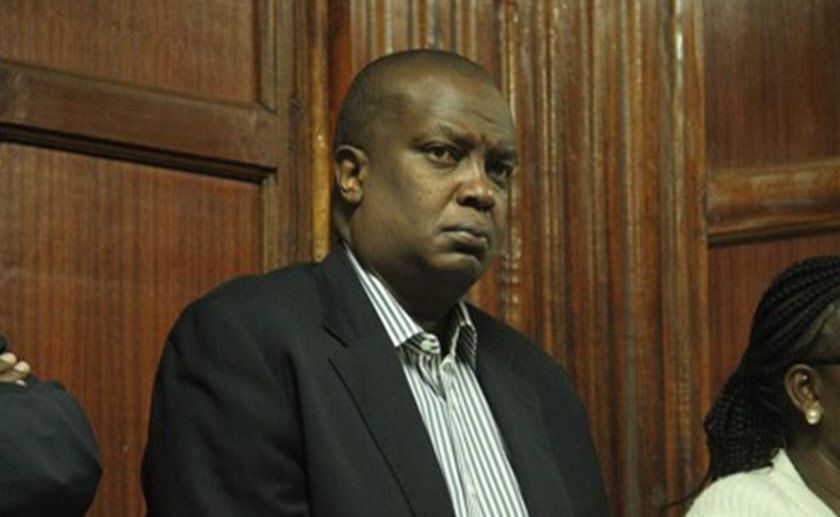 A former Nairobi County Finance Officer has successfully argued for a reduction in the cash he is required to forfeit to the State.
A former Nairobi County Finance Officer has successfully argued for a reduction in the cash he is required to forfeit to the State.
Jimmy Kiamba and his spouse Tracy Mbinya convinced the Court of Appeal that an earlier High Court Order of seizure had included their Kes.168.7 million rental and business earnings in the Kes.282.6 million he was directed to forfeit to the State.
In 2018, the High Court deemed the cash as unexplained wealth, which the anti-graft watchdog linked to shady procurement deals within City Hall and looted from the county coffers.
Court of Appeal judges, Ali Aroni, John Mutivo, and Laibuta Kibaya, on Friday, February 9, ordered Jimmy Kiamba and his wife to instead surrender Kes.114 million cash in the bank.
“The appeal succeeds only to the extent that we hereby set aside the trial court’s order requiring the 1st appellant to pay to the Government the sum of Sh282,648,604 and, in its place, we hereby order and direct that the appellants do jointly and severally pay or forfeit to the Government of Kenya the sum of Sh113,893,743, being the unexplained cash in their bank accounts,” ruled the Appellate judges.
Further, the court directed the former Nairobi county chief finance officer to surrender a maisonette in South C, four apartment blocks, and two parcels of land.
This after the Ethics and Anti-Corruption Commission (EACC) convinced the court that some of the properties that had been dropped from the list of assets to be forfeited to the state constituted unexplained wealth.
The EACC had initially categorized 15 landed properties, seven vehicles, and funds in eight bank accounts as ‘unexplained assets,’ valuing them at Kes. 872 million. Subsequently, the amount was decreased to Kes. 575 million.
Multi-million Properties in Upmarket Nairobi
As the three judges expanded the list of properties slated for forfeiture, they questioned how Mr. Kiamba could amass several high-end properties between 2009 and 2013.
While serving as a county finance officer, Kaimba earned Kes.145,000 per month, yet he managed to accumulate properties and cash deposits in bank accounts totaling over Kes.1 billion within three years.
“Even if one was to assume that the undisputed properties generated income, there was no evidence placed before court in support of huge sums of rent that would have enabled the appellants to acquire the properties they did in upmarket Nairobi,” the justices observed.

The Court ruled that there was insufficient evidence to substantiate claims that the former city county official could afford three apartments on Pritt Lane in Lavington Nairobi.
Kiamba also acquired an apartment named Skyrock for Kes.25 million on August 17, 2012. He bought a maisonette in South C for Kes.10.5 million in 2010.
“We further order and direct the payment by the appellants of the current market value of the assets listed or forfeiture in place of payment to the Government of Kenya of the current value of the said assets forthwith,” read part of the ruling.
Alleged Source of Wealth
The former CFO had justified his fortune, claiming involvement in large-scale wheat and livestock farming since 2006, ownership of two hotels in Mombasa and Machakos, engagement in water and quarry business in Machakos, and rental income from properties jointly owned with his wife.
His wife Ms. Mbinya informed the court that she received a monthly rental income of Kes.250,000 from the Skyrock apartment, earned Kes.1 million monthly from her interior design company, and another monthly income of Kes.200,000 from a beauty parlour.
The judges concurred with the EACC’s argument that the trial judge, Hedwig On’gudi, made an error by neglecting to examine the disparity in income between 2009 and 2013, which surged from Sh600,000 to Sh95 million within six years.
“We therefore fault the learned trial judge for finding, in the absence of sufficient explanation and supporting evidence, that the appellants’ known income could support the purchase of the following assets,” the judges said.








